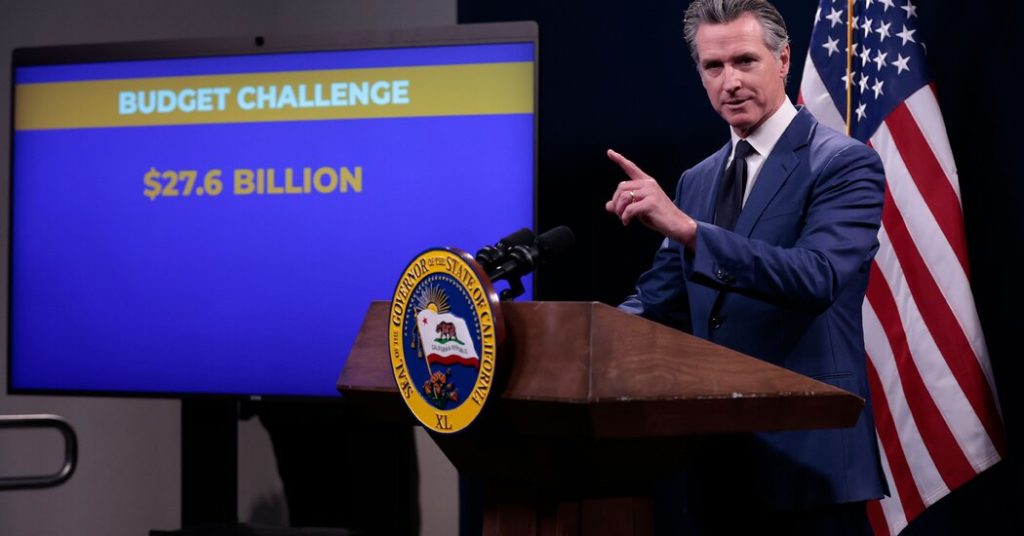California lawmakers recently reached a deal to close a state deficit estimated at $47 billion, leading to a nearly $300 billion state budget for the next fiscal year. The budget, which has been a challenge for the state’s Democratic leaders, includes tapping reserves, delaying minimum wage increases for health workers, suspending some tax breaks for businesses, and cutting or postponing billions of dollars in state spending. Governor Gavin Newsom stated that the agreement sets the state on a path for long-term fiscal stability, aiming to address the current shortfall and strengthen budget resilience in the future.
The lawmakers’ budget deal includes a $297.9 billion budget for the upcoming fiscal year, taking effect on July 1, with a general fund of $211.5 billion. The gap of $46.8 billion will be covered through various maneuvers, including trims of $17 billion that were agreed upon earlier in the year. The state will utilize reserves and eliminate about 10,000 unfilled jobs, while also suspending some tax breaks for businesses. The state prison budget will be cut more than initially proposed to protect programs addressing homelessness, subsidized child care, and other social services.
The agreement was reached after months of negotiation and attempts to manage California’s volatile finances. The state’s system of taxation, which heavily relies on personal income and capital gains taxes, can lead to significant revenue swings in response to changes in the economy. Efforts have been made over the years to manage this volatility, including setting aside reserves and streamlining the budget-making process. The recent fluctuations, however, have demonstrated that further improvements are needed.
In a bid to address structural budget issues, the latest budget deal spans two fiscal years rather than one. This approach allows for early projections of potential revenue shortfalls for the following year and includes commitments to bolster reserve funds to better cushion the state for future lean years. Lawmakers have also agreed to pursue a rule that sets aside part of any future projected surpluses until the money is actually available. Additionally, lawmakers are considering placing proposed bond issues on the November ballot, subject to voter approval, to help pay for programs related to climate, housing, or public schools.
California’s recent financial challenges have been attributed to factors such as fluctuations in the stock market, changes in interest rates, and extensions of tax deadlines. The state’s revenue has been affected by economic shifts and unforeseen events, leading to a swing from surplus to shortfall in a relatively short period. The budgeting decisions made by lawmakers will play a crucial role in addressing these financial challenges and ensuring the state’s economic stability in the future.


